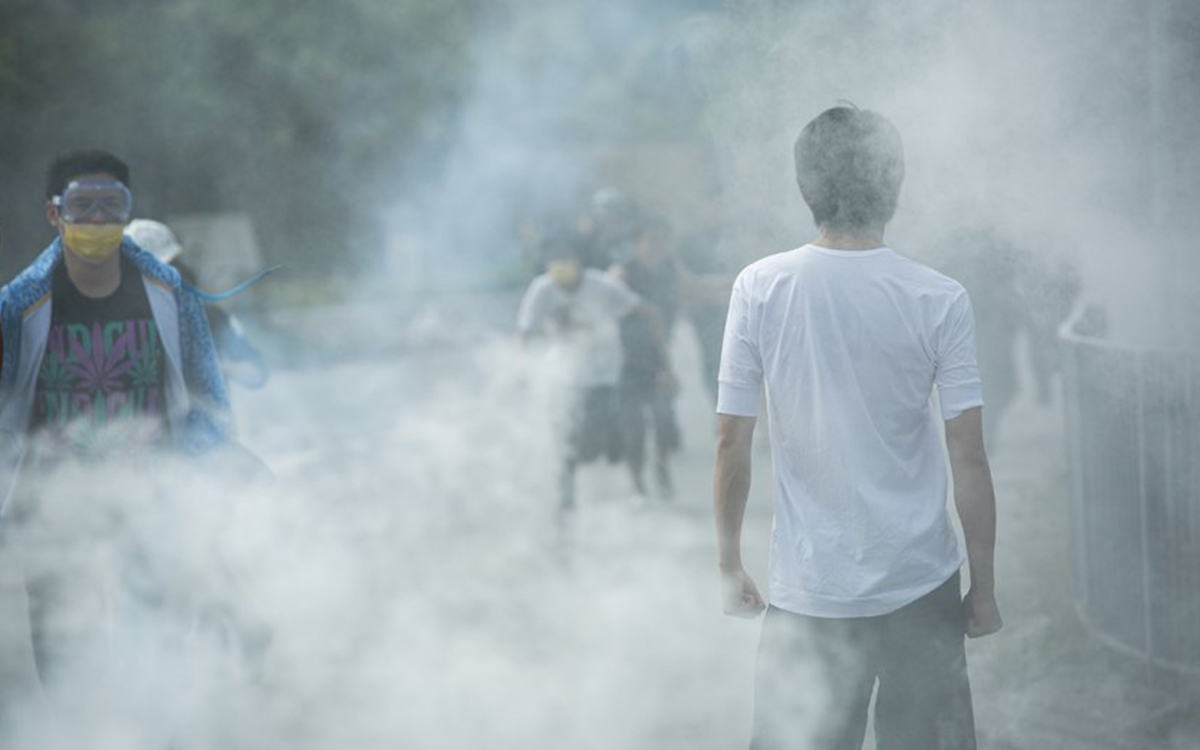- Chinese press ignores—or is told to ignore—dystopian film Ten Years’ win in Hong Kong
- State-run media previously condemned the film as “ridiculous,” accusing fans of using drugs
- Publicist says win went uncovered because Beijing “wants to control people’s thinking.”
Dystopian Hong Kong film Ten Years may have scooped up an award for Best Film at the 35th Hong Kong Film Awards on Sunday, but there is little sign of its success in mainland Chinese media.
The politically sensitive futuristic film in five parts, directed by five different people, depicts a bleak future for Hong Kong under Beijing rule in the year 2025.
Its win went largely unreported in mainland Chinese media on Monday. Chinese state-run newspaper Global Times previously denounced the low-budget movie, which became a surprise hit in Hong Kong, as “ridiculous” and a “virus of the mind” spreading desperation.
Coverage of the event at the Hong Kong Cultural Center in Tsim Sha Tsui on Sunday evening was muted on the mainland, with only a few mentions of the film’s success. Newspaper editors on the mainland routinely are instructed to quash stories displeasing to the one-party state.
A publicist for Ten Years told China Film Insider the filmmakers were not surprised by the mainland media blackout as the broadcast ban had already been reported.
“Indeed, they don’t even mention us, but the audiences will ask, ‘Where is the Best Picture?’,” he said via text message.
Asked what message the mainland Chinese media’s silence sent, the publicist, who declined to be named, said it was “hard to tell” but suggested it could be because the Chinese government “wants to control people’s thinking.”
The day after the awards ceremony, searches for “Best Picture” on Baidu News, mainland China’s dominant news search engine, resulted in only a single recent article that apparently slipped through China’s censorship apparatus.
“Congratulations! Aaron Kwok won his first best actor at the Hong Kong International Film Festival, while Mainland censored film 10 years nabs ‘Best Picture’,” read the lone headline from Taiwan’s China Times (中时电子报)
Meanwhile, Mtime, mainland China’s leading movie website, published a list of all the award winners on its website—but any mention of Ten Years winning the Best Picture prize was conspicuously absent.
Leading Internet portals Sohu and Sina both covered the event but failed to mention which film received the award for best film.
Discussion of the win was also largely absent from Sina Weibo, China’s Twitter. According to Freeweibo.com, which collects and publishes posts deleted from China’s popular social media service Sina Weibo, messages containing the words Ten Years was among the most censored on Monday, the day after the ceremony.
The Hong Kong Film Awards’ official Weibo did mention the film, but in a very understated way, perhaps to avoid mainland censors’ criticism.
A message posted the day before the awards ceremony included a collage of scenes from the films nominated for best picture. Part of the text in the message thanks the Ten Years Studio for providing the photo.
One message which managed to get past Chinese censors on Weibo suggested fans of the film were drug-users bent on harming the mainland. A picture of a dog with text across its face reading “We can destroy you anytime, you bunch of reckless little crabs.”
The silence extended beyond mainland China’s borders into Hong Kong itself with vocally pro-Beijing newspaper, Ta Kung Pao keeping quiet.
On Twitter, outside of the censor’s reaches, more liberal-minded Chinese lamented the media blackout. “With the mainland media banned from reporting on the Hong Kong Film Awards best film, isn’t that just drawing people’s interest towards this “non-existent” film?” one user complained.
Additional reporting Chet Leung






